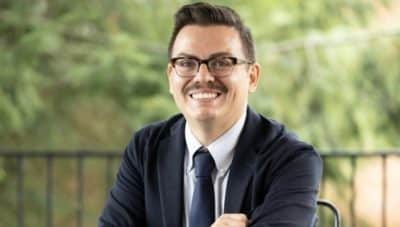
As inherently American as baseball and apple pie, racism against Blacks began when the first Africans were brought to the British Colonies.
However, racism is not just a part of American history. It has survived revolution, wars, the Great Depression and the Great Recession to remain alive and well in daily life.
And Valley residents are not immune to racism.
“Racism is sown into the DNA of America,” said RISE cofounder and CFO Chanda McGuffin Friday night during an education panel shared on Facebook Live on June 7, 2024.
McGuffin, who grew up in Waynesboro Schools, said she experienced racism as a Black youth and a woman. So, of course, she informed her son of racism when he was growing up. She wanted him to be prepared.
“So, why is it would I look at my son and say ‘you’re not experiencing that, son’?” McGuffin said. “When I already know that I have experienced it in the same school system and nothing’s changed.”
She asked audience members to remember the movie “A Time To Kill,” when Matthew McConaughey’s character describes what happened to Samuel L. Jackson’s young daughter. Then the lawyer told the jury to imagine the daughter was white.
McGuffin said when Americans wonder what is wrong in society, they should look in the mirror. If parents are silent when racism happens, their silence teaches children to be silent.
Panelists Dr. Amy Tillerson-Brown, a history professor at Mary Baldwin University and chair of the history department, McGuffin and RISE co-founder and CEO Sharon Fitz discussed the idea of “otherness.”
Tillerson-Brown said that othering often “teeters on discrimination.” Public school systems are usually in a position to ignore the reality of racism outside school buildings, so they do not know how to handle situations within schools.
“And, when that happens, the otherness is even more amplified because you have a group of people who are already here feeling that hurt, feeling those discriminatory actions, feeling the otherness and then, when they go to those who are in control for help and assistance, because that’s where they think they are supposed to go, then they are even further “othered” and marginalized,” Tillerson-Brown said.
McGuffin said her son began to understand “otherness” when he was two years old, and a preschool teacher told him he and a white child could not be brothers. “It shook him,” she said.
“She wanted to make sure that he knew he was different. That’s the othering,” McGuffin said.
As Black children grow in public school systems, they mimic their white peers but receive a different academic experience and different treatment. According to Fitz, classrooms are not culturally neutral to welcome both white and Black students. Some content is not suitable for Black students.
Fitz asked the audience what community members want RISE to do about racism in the local schools.
Tillerson-Brown said that Brown v. Board of Education in 1954 integrated America’s public schools not on moral grounds but because the government did not want to continue to pay for two school systems during the Cold War.
“Racism is often inescapable,” Tillerson-Brown said. The question is, what should Americans do next?
Fitz and McGuffin have heard stories from students who participate in RISE activities about racism in Augusta County, Waynesboro and Staunton public schools.
“Sometimes, we leave out of here in tears because of what our children are experiencing in these schools,” McGuffin said.
She shared several stories about RISE children’s stories, including a young boy in Augusta County realizing that his white teacher did not accurately read a book in class to him and his classmates about Malcom X as a child. The teacher read out loud to the class her own version of the story. When McGuffin read the story to RISE students, the young boy became angry when he realized his teacher lied about the book’s content.
“We’re not saying all teachers, but there’s quite a few who do not have the ability to see Black children as children, and that’s the challenge,” Fitz said. The children internalize how they are viewed by their teachers and act out in class because they see no value in themselves as students.
Related stories:
RISE to host education panel Friday evening on racism in local public schools – Augusta Free Press










